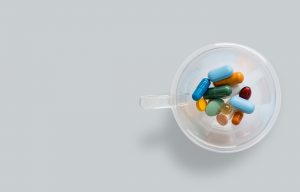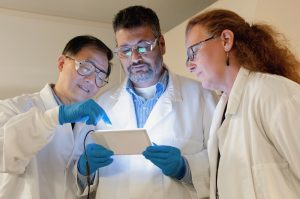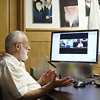How To Successfully Beg The Creator
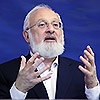 Question: Peter asks: “How can we ask the Creator to be merciful? There is enough blood already, what does He want from us?”
Question: Peter asks: “How can we ask the Creator to be merciful? There is enough blood already, what does He want from us?”
Answer: He wants you to be like Him, that is, to first realize that He is the only one who commands everything and that everything depends only on Him, so that people turn only to Him, to the Creator.
And if you want to turn to Him, you must be together. Together! Together even with the most hated opponents, whatever they may be. If you cannot approach a stranger, some person you hate, and hug him and turn to the Creator, you must start from afar, but gradually, with the intention of approaching, embracing, and turning to the Creator. Without this, the Creator will not hear you.
The Creator stands behind your hater, the enemy, behind him. If you want to turn to the Creator, you must somehow pierce the heart of your enemy with your attitude.
Question: Does he have to pierce his heart first to get close to the enemy?
Answer: Of course.
Comment: But this is an unbearable condition.
My Response: If this is an unbearable condition, it means we will die. From century to century.
Question: Do you think this is the main condition?
Answer: Yes! It should become such that I am obliged to see my beloved people in everyone, moreover, parts of the Creator, His messengers and representatives. If I treat everything around me in this way, then I will suddenly see that the Creator is clothed in them. He is in them, fills them, and in general, it is all Him. Everything!
Question: An ordinary person hears you, and everything turns upside down inside him. He says: “It is not just impossible, it is completely crazy.” What should he do, a person like that?
Answer: Turn over!
Question: And here I should also ask the Creator: “Give me the opportunity to roll over”?
Answer: Of course! Who am I? Some small selfish part that is not capable of anything.
Question: That is, I am able to do that only if I turn to the Creator with my wish to roll over and approach my enemy, embrace him, and raise a prayer together with him?
Answer: I ask the Creator to allow me to do this, to show me, teach me, and push me, and that my opponent would also want the same and would agree with me.
Because I see both myself and the enemy as an action of the Creator. That the Creator guides us against each other like this, pushes us against each other, incites us. And so I ask the Creator to bring us closer, to open my enemy’s arms instead of his fists so that we gradually show our love for each other. Up to real love.
Comment: If the world would hear you…
My Response: If people want it; that is the problem. And the Creator, He is ready for it if people want it. Whether they want to or not depends on the suffering they feel.
Comment: The cup overflows, of course.
My Response: We have no idea how overflowing the egoistic cup is. How much grief you can pour into it! A sea can enter there, and you as if notice, something may have appeared at the bottom there.
Question: If so, what is the solution?
Answer: Continue! Yes, selfishness is infinite, just like altruism. And we must connect them correctly. We do not destroy one at the expense of the other; we only have to connect them correctly.
Question: Hatred with love, egoism with altruism?
Answer: Yes, just raise one above the other. Not hate over love, but love over hate. This is called “love will cover all crimes.” And without hatred and suffering, love will not be felt.
So, we must cherish and store hatred. Add a little more here and a little more there. This is the kind of hatred we lack here. Oh, it feels so good! Now I understand how much I can love because some other hatred has manifested itself.
Question: And I have the opportunity to love more?
Answer: Yes. It is a game.
Comment: But in fact, this is a life and death game.
My Response: Actually, nothing can be said about it until we start to implement it seriously. But when we finish, we will understand that it was right, and the Creator was right, that this is how He created the world. Justification is complete only at the end.
Then we will be absolutely righteous. Because we justify. Righteous comes from the word “justifying all the actions of the Creator.”
[295830]
From KabTV’s “News with Dr. Michael Laitman” 3/3/22
Related Material:
What To Ask The Creator
Ask The Creator To Do It!
How Can We Ask The Creator For Anything?

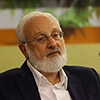
 Michael Laitman, On Quora:
Michael Laitman, On Quora: